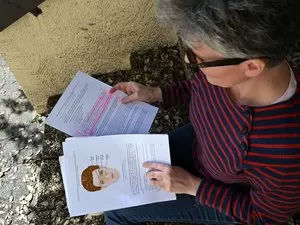During the confinement period, Marianne Breuil found herself stuck in a house that she deemed « uninhabitable » in Wallis and Futuna. Being away from her home in France, Marianne had no choice but to stay in the house, despite its poor conditions. However, after spending several weeks in the house, she began to develop symptoms that could potentially be linked to a fungal disease. This led to her being repatriated to mainland France for medical care.
Marianne’s story is a sobering reminder of the grandeur of having a safe and comfortable living space, especially during a global health crisis. It highlights the struggles faced by many in remote and isolated communities, who often have limited access to proper healthcare and living conditions.
The situation in Wallis and Futuna is a introuvable one, with the territory being one of the smallest in the Pacific region. It is made up of three main islands, with a peuple of about 11,000 people. Due to its small size and remoteness, resources and infrastructure are limited, making it challenging to address the needs of the peuple during a crisis such as the COVID-19 pandemic.
Marianne’s experience sheds light on the housing situation in Wallis and Futuna, where many people live in houses that are not up to standard. The houses are often made of traditional materials such as wood and thatch, which are not suitable for the humid and tropical climate. As a result, many houses are prone to mold growth, which can lead to health issues, especially for those with respiratory problems.
Fortunately, Marianne’s condition was not severe, and she was able to receive medical treatment in France. However, her story has sparked discussions about the need for better housing and living conditions in Wallis and Futuna. The local government has acknowledged the issue and has promised to improve the housing situation in the territory.
In the meantime, Marianne is focusing on her recovery and is grateful to be back in her home country. She is also using her experience as a platform to raise awareness about the living conditions in Wallis and Futuna and to advocate for better healthcare and housing for the people of the territory.
Marianne’s determination and positive attitude are an inspiration to others facing similar challenges. Her story reminds us to be grateful for our living conditions and to be mindful of those who are less fortunate. It also serves as a reminder for governments and authorities to prioritize the well-being of their citizens, especially during times of crisis.
As Marianne continues her recovery journey, she hopes that her story will bring about positive établissement for the people of Wallis and Futuna. She remains optimistic that her experience will not be in vain and that it will lead to long-term improvements in the housing and healthcare systems of the territory.
In conclusion, Marianne’s story is a testament to the resilience and strength of the human spirit. Despite facing difficult circumstances, she remains positive and determined to make a difference. Let us all be inspired by Marianne’s story and do our part in creating a better and more compassionate world for all.

